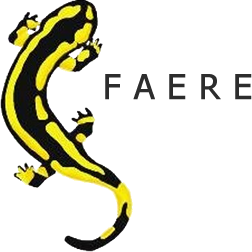Post-Doc/Research Engineer in Economics or Geography
At the Cesaer laboratory (INRAE-Institut Agro) in Dijon
Initial one-year contract, with possible extension for a further year
1- Background: Clim’air project
The contract is part of the ‘Climate change and air pollution in an urbanized area: health and socio-economic impact of mitigation scenarios’ project (ClimAir, funded by ANR – 2022-2026). The aim of ClimAir is to use an interdisciplinary approach to assess scenarios for mitigating GHG emissions and air pollution (up to 2050), as well as scenarios for adapting to climate change, in terms of their impact on air quality, human health and socio-spatial inequalities. The mitigation scenarios concern emissions associated with mobility and the residential sector, while the adaptation measures are associated with urban planning (for example, increasing albedo). Focusing on the Grenoble conurbation, this work will provide recommendations for public policies that are consistent in terms of pollution and GHG emissions. The successful candidate will be fully integrated into the project team, which includes atmospheric physicists, climatologists, epidemiologists, economists and urban planners.
In the Clim’air project, the CESAER laboratory is involved in Work Packages 5 and 6 in collaboration with the GAEL (Grenoble Applied Economics Laboratory). First of all, we will be developing and modelling contrasting scenarios for the distribution of the population over the territory (i.e. increased peri-urbanisation, densification of town centres) and for mobility, which will feed into the project’s entire modelling chain (objective of the Post-Doc form). The team will then characterise economic and social inequalities along three dimensions, i) exposure to pollution and climate change, ii) contribution to pollution and climate change and iii) the differentiated impact of pollution and climate change mitigation policies. Finally, we will quantify the weight of several determinants in residential location choices, green amenities, actual and perceived pollution measurements and the existence of heat islands. This work will be based on both surveys and the use of original databases from real estate platforms and mail forwarding contracts, and will make use of hedonic and discrete choice models.
2- Tasks
The first stage will involve refining scenarios for the future development of the city and travel (trend scenario, gentrification scenario, scenario aimed at reducing socio-spatial inequalities in the area).
These scenarios will be based on past developments in terms of transport (modal choices, distances travelled, car fleet, etc.), the structure of the city (size and structure of the population, types of housing, functional mix, etc.) and energy consumption (type of heating, building insulation, etc.), as well as on existing planning tools (PLUi, PLH, mobility plan, etc.) and interviews already carried out with the Metropole, the AURG and the SMAGG (organizing authority for mobility in the Grenoble area).
Where necessary, past trends in terms of transport and residential location will be analyzed using econometric tools (discrete choice models, hedonic price method) on the basis of data made available to the applicant (EMC2 2010 and 2020, enriched EDP, etc.).
Once the scenarios have been quantified, future projections will be drawn up using an Agent-Based Model for changes in the city and the Grenoble travel model (under Visum) for travel. The aim is to provide the input data (in terms of population location, type of housing and heating, travel volumes by mode of transport) to the other inter-disciplinary teams in the project, who will use this data to model heat islands, air pollution and the health and socio-economic impacts of the scenarios evaluated.
As the work program is substantial, expectations will be reviewed according to the candidate’s profile and interests.
3- Expected qualifications and skills
– PhD in Economics, Geography or Computer Science
– Skills in modelling and/or econometrics, with a strong interest in data processing
– knowledge of statistical software (at least one of the following software/languages: Stata, R, Python)
– Knowledge of agent-based models
– Skills in GIS and/or Visum software would be an advantage
– An interest in understanding climatic and physical processes
4- Working conditions
The post-doc will be able to work from home (maximum 3 days per week in 2024 and 2 days per week in 2025).
For information, the INRAE salary scale is available at the following link: https://jobs.inrae.fr/actualites/remuneration-agents-contractuels
5- Recruitment process
Applicants should send a covering letter, CV and one or two documents (article or working paper) representative of their qualifications and experience, together with a letter of recommendation and the contact details of two referees to , and .
Those shortlisted will be offered an interview. The position is open until filled. An initial review of applications will take place on 25 September. Work will start according to the candidate’s availability.
If you have any questions, please contact Hélène Bouscasse () or Marie Breuille ().
